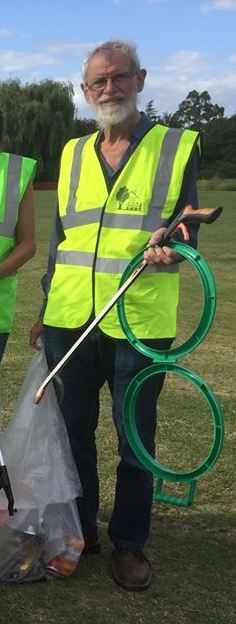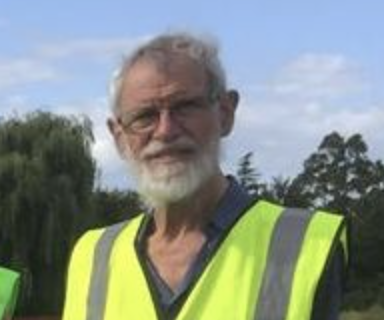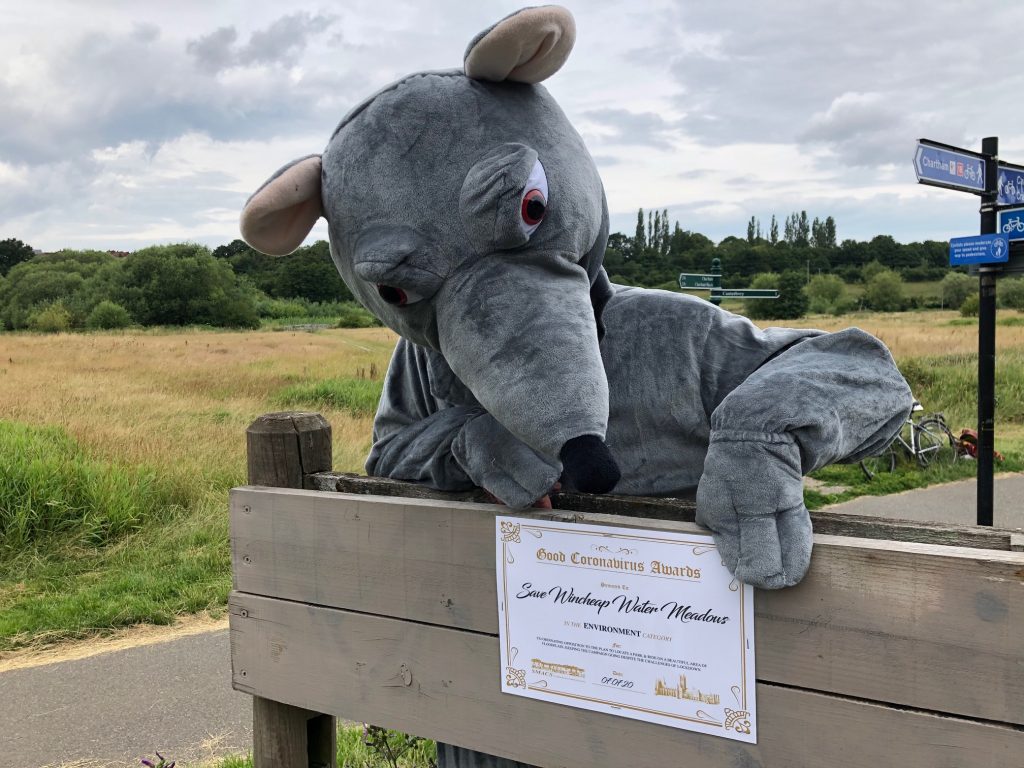 Does Canterbury have anything in common with ancient Athens? Are we living out the lessons of moral philosophy — or are we closer to living in a jungle? What did lockdown teach us? And what are Trump and other populists showing us about our democratic values? Richard Norman, Emeritus Professor of Moral Philosophy at the University of Kent, a Patron of Humanists UK and a Trustee of Love Hambrook Marshes, talks to Neasa MacErlean about these issues and the way he links the study of ethics to real life.
Does Canterbury have anything in common with ancient Athens? Are we living out the lessons of moral philosophy — or are we closer to living in a jungle? What did lockdown teach us? And what are Trump and other populists showing us about our democratic values? Richard Norman, Emeritus Professor of Moral Philosophy at the University of Kent, a Patron of Humanists UK and a Trustee of Love Hambrook Marshes, talks to Neasa MacErlean about these issues and the way he links the study of ethics to real life.
NM: How do your campaigns (especially those in Canterbury) and your academic interests relate to each other?
RN: Philosophy is always in danger of becoming very academic and losing touch with real-life concerns about what we should believe and how we should live, the concerns which gave rise to philosophical thought in the first place. In my own work I’ve always tried to make the link – and the link goes both ways. Putting practical concerns into a wider philosophical perspective prompts you to try to think things through, and to recognize the complexities in what may look like simple campaigning positions. For instance, there’s a tendency for people in campaigning groups to assume that all the arguments in support of their campaigns are good ones and all the arguments against are bad ones, and I often find myself thinking: Hang on, maybe our opponents have a point here. To take just one example, I’ve always been active in campaigning against nuclear weapons, and one of the arguments you come up against, of course, is that we need nuclear weapons as a deterrent. Campaigners tend to dismiss that idea, but as a philosopher I want to say: It may be a bad argument but we’ve got to take it seriously and recognize its plausibility as well as its weakness.
More locally, in recent years I’ve got involved in environmental campaigns, for instance to ’Save Chaucer Fields’ and, now, Save Wincheap Water Meadows. This is a good example of how practical engagement can sharpen up one’s philosophical thinking. There’s a large philosophical literature on environmental ethics, much of it focused on rather abstract questions about whether our approach should be “anthropocentric” – wanting to protect the environment for the benefit of human beings – or “ecocentric” – protecting the natural world for its own sake. Real-life examples lead me to think that that’s a false opposition. The value of the natural world is inseparable from our relationship to it. It is the context in which we make sense of our lives and our humanity, through our relations to other living things. It’s not just a matter of promoting our own human interests, but of getting a right relationship to the natural world as a vital part of being human.
NM: I heard you once advocate being flexible and somewhat forgiving the Council’s policy to fine people for dropping litter. I was surprised and impressed by that. Can you explain?
RN: Again it’s a matter of recognizing the complexities and thinking them through. So many of our ethical dilemmas arise because we have a plurality of values, which can come into conflict with one another, so that there is right on both sides and no simple way of resolving the conflict – for instance, the clash between the value of protecting the natural environment and the value of individual responsibility and personal autonomy. There is also the importance of thinking through all the consequences of our policies and positions. Philosophy should serve as a reminder that ethical thinking is sometimes complicated and difficult!
NM: How does a philosopher with your views find Canterbury as a home?
RN: One of Canterbury’s great assets is that it is large enough to be an interesting and stimulating place to live, but small enough to create a real sense of community, with active neighbourhood groups. The Canterbury Society is an impressive example – bringing together a committed group of people who know one other and want to work together for the community as a whole.
Another good thing about Canterbury is that, being a relatively small city, it gives easy access to the countryside. It’s vitally important to preserve that – which is one of the reasons why we are campaigning to protect the water meadows from having a car park built on them.
NM: What have we learnt from lockdown about our values and needs?
RN: We have become more aware of how we need community. People have been reminded that sitting at home tweeting and zooming isn’t enough for a fulfilling life. We need to meet up, we need other people. And we’ve also been reminded how important it is to get out into the open air. When people are deprived of these things, they realise how much they miss them and need them.
NM: You have been chairing hustings for Council and Westminster elections for years. What particular trends have you noticed?
RN: What has struck me most over the years is simply the growing number of people who turn up. It shows that people relish real political debate, face to face debate, of a kind which goes beyond empty slogans. At the last general election [2019] we had a huge audience for the candidates’ debate at Christ Church University. It’s a conception of politics which takes us back to the birth of democracy in ancient Greece, the world which was also the birthplace of Western philosophy – the world of Plato and Aristotle – which was what got me interested in philosophy myself. Philosophy, like democracy, begins in the polis, the small community of the city-state, where people come together in the assembly and the market-place to discuss and debate matters of common concern. It would be nice to think that here in Canterbury we can continue that tradition.
NM: How do you interpret the arrival of Trump and the populists in world politics now?
RN: It’s prompting people to think about the nature of democracy. We are seeing some very scary developments which pose a threat to democracy, but we are also being reminded of some of the built-in dangers and weaknesses of democracy itself. Plato himself was strongly anti-democratic because he saw how democracy could be exploited by ruthless demagogues, political leaders who played on people’s emotions in order to further their own ambitions. He saw how easily democracy could turn into tyranny, and we are being reminded of that again now. And the answer is not to turn against democracy, but to try to strengthen it. We should not assume that the political system we have in this country is necessarily the last word in democracy. The need to strengthen democracy should take us back to the importance of real face-to-face political debate. Another reminder of the vital role which organizations like the Canterbury Society can play.
NM: Can you explain specifically why face to face debate is so important in politics? Why do you choose to highlight that issue when there are so many you could highlight?
RN: It’s important that politics should be rooted in face to face encounters where people have to react to one another and respond to one another as people, not just as slogans. The aim is to take politics back to the things that really matter to people. Again, that’s the importance of organizations like the Canterbury Society holding meetings about things like local poverty or threats to the environment or problems of traffic and congestion.
NM: Many of us think of politics as being about Westminster. But you are describing it rather differently. You are taking it down to the daily issues. Is that right?
RN: Yes, politics is about the polis, the community in which people live their day-to-day lives.


